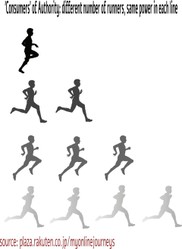If you wish to extract a purpose from the Internet most specifically from the World Wide Web then you must own a website or a blog. These are multifeatured functional interfaces to solve the visitors' problems and lead to the goal conversion envisaged by the owner. Thus, both the users and the owners benefit but there lies a big question mark.
In order to gain benefits, the users must access the website easily and the owners must receive traffic or referrals. This is not that easy albeit achievable. The website generates traffic or leads if it ranks well on the search engine result pages (SERPs). Referrals accrue if the site is well linked with many high-traffic relevant sites, which is called web saturation. Linking is responsible for high ranking on the SERP to generate traffic and reach the target audience. But this is just the beginning since among various metrics responsible for high-ranking, website construction plays a major role. On this page, we are going to discuss how a website should be made for achieving the objective.












 Full Day Safari in Bandhavgarhon 08/29/2023
Full Day Safari in Bandhavgarhon 08/29/2023
 SEO Campaign: Website Overhaulon 02/13/2023
SEO Campaign: Website Overhaulon 02/13/2023
 Indian Food It Is Not All Curryon 02/08/2023
Indian Food It Is Not All Curryon 02/08/2023
 How Tiger Tourism is Organized in India?on 02/07/2023
How Tiger Tourism is Organized in India?on 02/07/2023



Comments
Please create content relevant to the topic and add the desired link on the targeted anchor text now and then. In fact, use a number of anchor texts.
SEO is a mystery to me. I do my best but it's never good enough for Google.
I am sure Google search would yield such information.
The subheading A Website for Visitors User Experience (UX) & Smooth Navigation cautions that "Aesthetics and color schemes matter but the elements responsible for a sound experience should never be sacrificed."
Your two images draw upon the Above the Fold site. I find the colors comforting, compelling and inviting.
Is there any information -- without forgetting the importance of non-aesthetic, non-color scheme elements -- about the crowd-pleasingest color schemes to use on blogs and sites?
Most of these metrics are not known as search companies keep their algorithms a big secret. But yes, Google has announced the importance of page speed as one of the primary metrics.
Webmasters will never know the hierarchy the metrics are placed in, hence, next to impossible to state what is more important and what matters the least. Thanks for the question.
The sub-subheading Cluster Formation - Site Architecture under the subheading A Search Engine Compliant Website totals 200-plus metrics for search engines to index and rank sites.
Would it be possible to offer an example of a metric at the top of the list in importance and of one at the bottom of the list in significance?
All elements matter for downloading but images and videos can slow down the page significantly. Pages should download in 3 seconds otherwise visitors start leaving increasing the bounce rate.
Yoiur second subheading, Web Page Design Optimization & Directory Structure, indicates that "Aesthetics apart, the relevant images, videos, and graphics should not slow down the page such that it downloads in three seconds."
Sources online mention that a visit under three minutes to a blog/web page or site counts as a bounce against the blog/web site.
Would graphics, images and videos contributing to pages downloading reasonably -- whatever that means ;-D, perhaps no more than 5 to 6 seconds? -- beyond the downloadee-friendly 3 seconds be viewed by blog/web accessees, advertisers and analysts as unfavorably as a bounce?
Yes, language options always help. Pl search language translators online
Reading attorney, author, professor Ragnar Jónasson augments my accessing Icelandic Wikipedia and Icelandic-language sites such as mbl.is.
Recently I noticed that the latter has an English translation option.
Would it help an English-language blog or site to have, for example, a Spanish-language option? And would it help a non-English-language blog or site to have an English-language option?